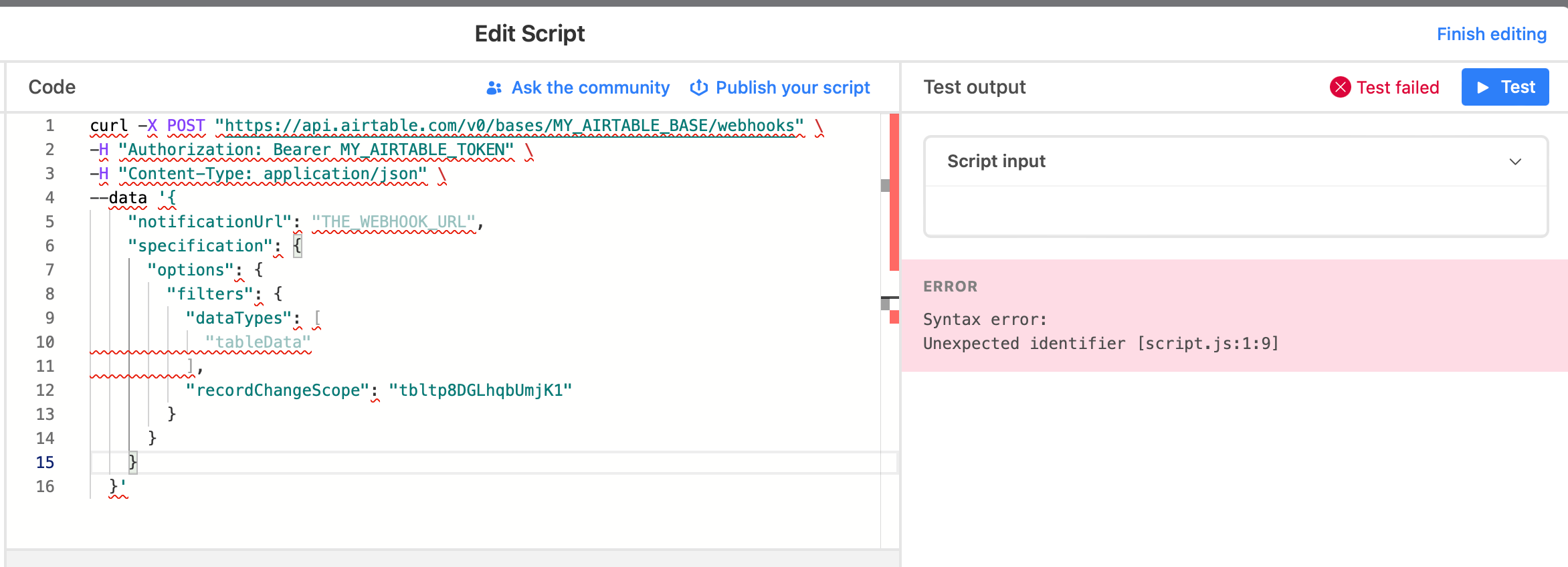I am trying to create an automation and I am trying to setup a POST webhook using the documentation at: https://airtable.com/developers/web/api/create-a-webhook
But every time, I get a syntax error in the first line. I have ensured all the correct data was entered, like my BaseId, Token, and Webhook URL.
I am stuck! Any guidance would be incredible 🙌



